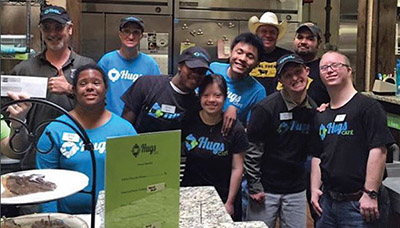
Everyone talks about the differences between the way things are today and the way they used to be. Probably the most frequent discussions surround technology and the enormous gains (if you want to call them that) that have taken place. We still relish the idea of receiving a letter of gratitude instead of a text message, and there was something nice about preparing an album of photos instead of having to look at everything on our phones. It seems that we no longer have to have a discussion and wonder about anything; we just pull out our smart phones and any facts that we need are easily at our fingertips. We are not sure if anyone uses an encyclopedia anymore, and dictionaries are something that the younger generation will never know about. At least in our family of champion Boggle players, the dictionary is often brought out on Shabbat to check to see if an opponent is making up the word.
Are we prepared for the fact that soon cars will be driving down the street without drivers? It feels kind of creepy. Perhaps the day will come when parents can relax more while driving and not have to juggle watching the road and refereeing their children as they complain about who is being more squished. There has to be some good in all of this, but it is too experimental for us to even imagine. How many planes are flown on “autopilot” these days? We think that we would all prefer not to know.
In our way of thinking, there are more significant and meaningful news items that are displaying some really positive attitudes and behaviors. Who could have imagined 50 years ago that a prince from the royal family would get engaged to a young, divorced woman who has a black mother? It was bad enough that the royal family struggled through the abdication of King Edward VIII in order to marry the divorced socialite Wallis Simpson. Today, divorce is looked at completely differently, as is obviously the case with Prince Harry and his betrothed.
However, we are much more excited to see the changes in the world’s attitudes to the special needs community.
Who could have imagined the possibility of a young woman with Down syndrome reaching her dream of competing in the Miss Minnesota beauty pageant with an eye on the Miss USA state pageant? She was given the director’s award.
Who could have considered the actuality of a restaurant, Hugs Cafe in Mckinney, Texas, that employs young people with special needs? At least 70 percent of its staff has disabilities. The lunchtime traffic at the establishment frequently has a line of patrons waiting to enter. As one of the reviews of the restaurant says, “This place has great food, great service and sweet smiles.”
Fast forward to the amazing community and surrounding communities that we live in. How many know that there are businesses, retail and wholesale; a beauty parlor; schools; nurseries; caterers; hospitals; hotels and many other establishments that today are proudly welcoming young adults with special needs into their workplaces to be trained under supervision and, in several cases, to be offered full-time employment?
If, in fact, one notices a business establishment that is training and employing these young adults, it would be a special gesture to commend the employers on their actions.
We have come a long way from the days when families giving birth to children with special needs were given the opportunity to not bring those children home from the hospital. Today, the sky’s the limit if we are realistic about our child’s capabilities. Kol Hakavod to the many people who have opened their minds and hearts in allowing themselves to get to know and gain from the relationships that they have developed with those who at one time were considered not worthy of inclusion in the community. We may not have a “Hugs Cafe” locally, but we certainly do have an “inclusion mind.”
By Rabbi Mordechai and Nina Glick
Rabbi Mordechai and Nina Glick are living in Bergenfield after many years of service to the Montreal Jewish community. Rabbi Glick was the rav of Congregation Ahavat Yisroel as well as a practicing clinical psychologist in private practice. He also taught at Champlain Regional College. The Glicks were frequent speakers at the OU marriage retreats. Nina coordinated all Yachad activities in Montreal and was a co/founder of Maison Shalom, a group home for young adults with special needs. They can be reached at nina@jewishlinknj.com.









